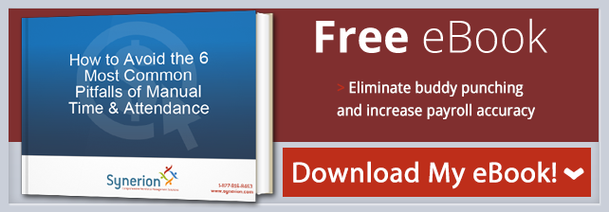 Tardiness is a fact of life. Some mornings the car won't start, it takes a little longer to get dressed, or there's a family emergency that leaves you racing to the office. For some employees though, tardiness is a daily occurrence and one that can negatively impact your productivity. Whether it be delayed meetings or difficulty communicating, a chronically late employee needs to be taken to task. With approximately 16 percent of workers clocking in late one or more day a week, the problem is widespread and these tips can help you address tardiness once and for all.
Tardiness is a fact of life. Some mornings the car won't start, it takes a little longer to get dressed, or there's a family emergency that leaves you racing to the office. For some employees though, tardiness is a daily occurrence and one that can negatively impact your productivity. Whether it be delayed meetings or difficulty communicating, a chronically late employee needs to be taken to task. With approximately 16 percent of workers clocking in late one or more day a week, the problem is widespread and these tips can help you address tardiness once and for all.
Establish a Policy
The first and most effective step to stopping chronic lateness is to write a strong policy that addresses the expectations for timekeeping and the consequences for chronic tardiness. For many employees, a lack of structure is interpreted as management allowing minor time violations. Create a policy and hold everyone in your organization to that policy. Have it signed by all employees and build in a system for managers to address chronic lateness with their employees. By standardizing the process and creating clear expectations with a timekeeping policy, businesses can help employees adhere to their schedule.
Start Tracking
It may sound strange, but many employees don't realize that they are chronically late. They recognize that they're rushing into the office most days but think those five or ten minutes don't really matter. The simple act of tracking their true time can help many employees recognize and correct their tardiness. Timekeeping software is the perfect way to keep accurate time records that are accessible to both your managers and your employees. The flexibility of timekeeping software allows you to build in warnings and notes to immediately address chronic lateness without extra managerial time. If you are relying on pen and paper, it's time to move to timekeeping software to rein in your chronically late employees.
Provide Mediation
Just because you have a solid policy doesn't mean employees won't forget the specifics of that policy. Changes in personal situations or work duties may result in a normally prompt employee becoming lax with clocking in on time and a gentle reminder can get that employee back on track. When writing a policy and speaking to managers about addressing tardiness, provide a system of mediation before punishment. Encourage managers to talk with their chronically late employees to discuss tardiness before escalating the issue. By encouraging mediation with chronically late employees, you create a more open and communicative work environment.
Consider a Schedule Change
In rare cases, employees are simply working against their very nature to make it to work on time. They may want to get to work on time but because of sleep requirements or family responsibilities, making it in the door by their scheduled work time is difficult. In these situations, it may be worth considering changing that employee's hours. During mediation, encourage managers to talk with employees about the specific reasons they can't make it to work on time. If there are ongoing issues that cause employees to be late and their job duties can be adjusted, consider a full schedule change to help employees report to work on time.
With a few changes, employers can reduce the incidents of tardiness in their workplace. Start with a clear policy and timekeeping software to provide employees with the information needed to avoid the consequences of failing to report to work on time. Then, address chronic lateness with employees individually, finding out the reason for tardiness. Tardiness costs businesses money, time, and morale and these four simple steps can put a stop to it in your workplace.
